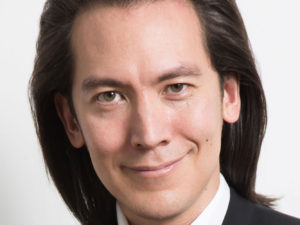
Bankers’ ability to successfully adapt to post-pandemic life will require a complete reframing of how they approach their business models, futurist Mike Walsh told attendees at the annual convention of the Independent Community Bankers of America.
“This is not a period of recovery from a pandemic, a return to normalcy,” he said at the meeting held in San Antonio, Texas, this week. “This is the dawn of a new era, one that’s gonna run on a very new set of principles.” Much like the Spanish Flu pandemic of 1918 ushered in a world of change, the Covid-19 experience has spurred a century’s worth of evolution in a compressed timeframe. Keeping up with that pace will require effort, Walsh said: Becoming future-proof is more than just about getting through a crisis – it is about being ready for the new world on the other side.
First, bankers must stop viewing the new reliance on digital means — including artificial intelligence — as a disruption, he said. “We are living through the digital delivery of everything,” Walsh said. “If you are not a digital business, you are out of business.”
Walsh listed three other shifts involved in this new world. Companies should no longer think in terms of selling products and services, but instead of building platforms, much like how Uber revolutionized the taxi industry. The second is a shift from transactions to experiences, illustrated by entertainment providers such as Netflix or Spotify. “We start to move into this world of AI, personalized and digital experiences,” he said. “We no longer pay attention to the transaction the way we used to.”
Finally, this emphasis on experiences means the elimination of friction must be prioritized, even in situations which rely on human relationships and interactions like community banking as digital delivery becomes the default.
Banks of the future will be defined by five characteristics, Walsh said: Mobility, autonomy, memory, objectivity and velocity. It no longer matters where the work of banking happens, making independent decision-making more important. Banks must be learning organizations documenting and remembering both good and bad decisions, Walsh said, letting the data challenge assumptions and beliefs. And, banks must do this while increasing the speed of their response to customer needs.
Rather than looking just at the tools that need to be upgraded for banking’s digital future, Walsh encouraged bankers to consider the mindset of their employees: “We have all kinds of new tools at our disposal, but have we really thought deeply about what this means for the way our organizations’ teams need to run in new ways?”
Bankers should set the tone for this cultural reset with their own leadership, identifying new skills and techniques to embrace. “As we entered the 21st century, a time of greater machine intelligence, automation and AI, I think we need a new way of working,” Walsh said. “Think about the behaviors that you can exhibit, the small things that you can adopt and that you can commit to in the next 12 months.”
